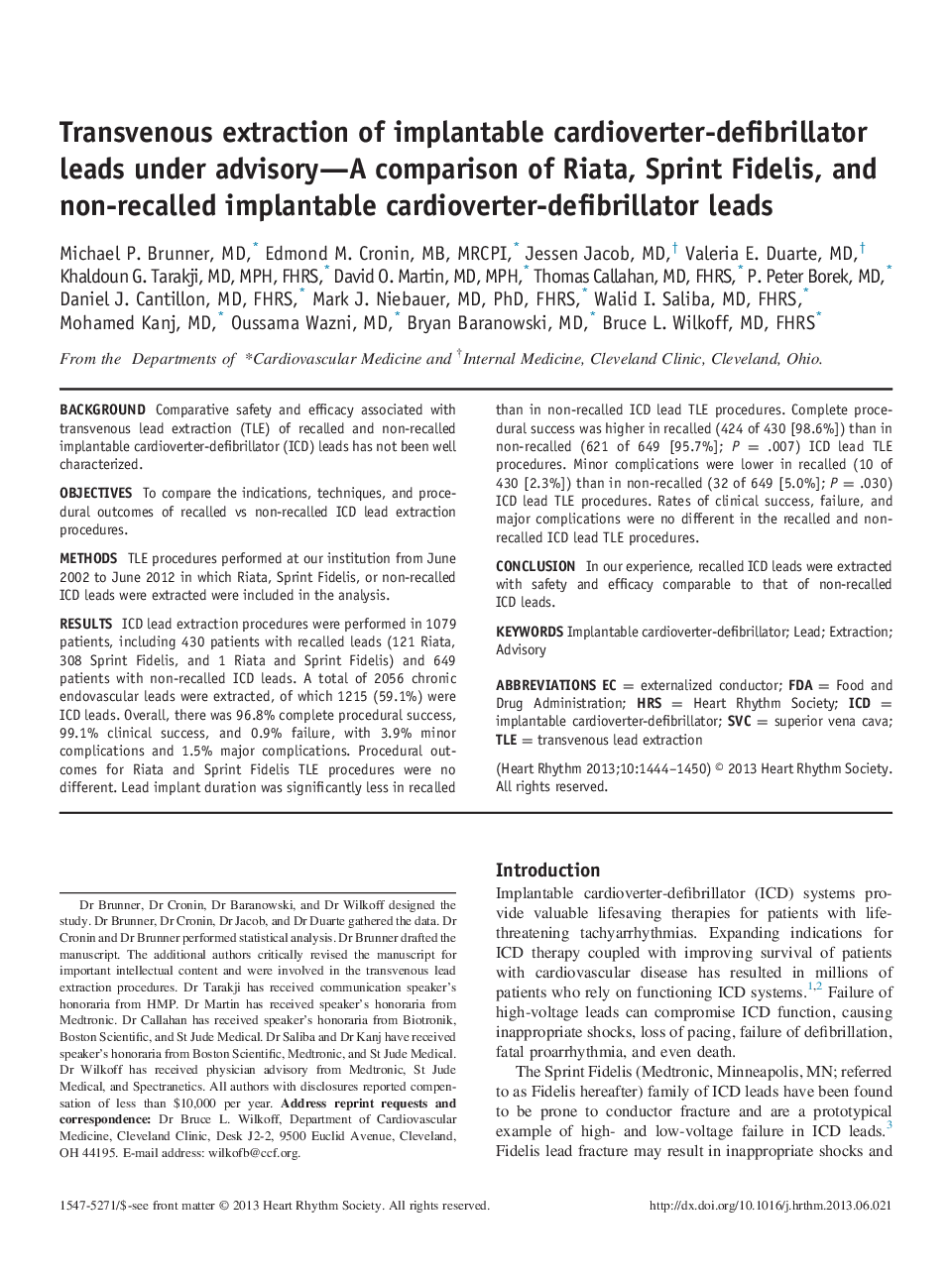| Article ID | Journal | Published Year | Pages | File Type |
|---|---|---|---|---|
| 2922063 | Heart Rhythm | 2013 | 7 Pages |
BackgroundComparative safety and efficacy associated with transvenous lead extraction (TLE) of recalled and non-recalled implantable cardioverter-defibrillator (ICD) leads has not been well characterized.ObjectivesTo compare the indications, techniques, and procedural outcomes of recalled vs non-recalled ICD lead extraction procedures.MethodsTLE procedures performed at our institution from June 2002 to June 2012 in which Riata, Sprint Fidelis, or non-recalled ICD leads were extracted were included in the analysis.ResultsICD lead extraction procedures were performed in 1079 patients, including 430 patients with recalled leads (121 Riata, 308 Sprint Fidelis, and 1 Riata and Sprint Fidelis) and 649 patients with non-recalled ICD leads. A total of 2056 chronic endovascular leads were extracted, of which 1215 (59.1%) were ICD leads. Overall, there was 96.8% complete procedural success, 99.1% clinical success, and 0.9% failure, with 3.9% minor complications and 1.5% major complications. Procedural outcomes for Riata and Sprint Fidelis TLE procedures were no different. Lead implant duration was significantly less in recalled than in non-recalled ICD lead TLE procedures. Complete procedural success was higher in recalled (424 of 430 [98.6%]) than in non-recalled (621 of 649 [95.7%]; P = .007) ICD lead TLE procedures. Minor complications were lower in recalled (10 of 430 [2.3%]) than in non-recalled (32 of 649 [5.0%]; P = .030) ICD lead TLE procedures. Rates of clinical success, failure, and major complications were no different in the recalled and non-recalled ICD lead TLE procedures.ConclusionIn our experience, recalled ICD leads were extracted with safety and efficacy comparable to that of non-recalled ICD leads.
